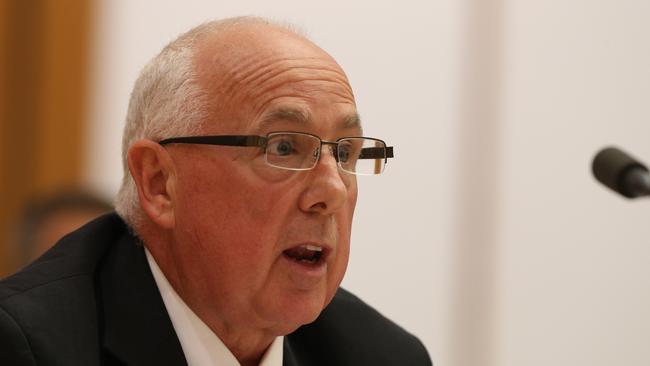Coronavirus: Working at home becomes flexible
New award flexibility measures in response to employees working from home during the COVID-19 pandemic have been unveiled by Fair Work president Iain Ross.

New award flexibility measures in response to the explosion in employees working from home during the COVID-19 pandemic have been unveiled by Fair Work president Iain Ross.
Acknowledging that most awards do not deal with working-from-home arrangements, Justice Ross released a draft award flexibility schedule that also allows for a compressed working week in which employees work the same hours over fewer days.
In a 13-page statement on Monday, Justice Ross said the working from home provision would allow an employer and an employee to reach an agreement that balanced the personal and work responsibilities of the employee with the business needs of the employer.
Under the proposal, casuals would be entitled to make a request for flexible working arrangements after six months, rather than 12 months, of regular and systematic employment.
As well as employees being able to take twice as much leave at half pay or to buy extra leave, the schedule allows for a change in the span of hours in a workplace. It would permit employees to share a reduction in hours where an employer cannot usefully employ all the workers. Both proposals would require the agreement of 75 per cent of employees.
Employers proposing to strike an arrangement under the schedule must agree that any disputes would be dealt with by arbitration. A schedule of hourly rates has been included to provide a calculated wage rate rather than a percentage of the hourly rate to avoid the need for employers and employees to make calculations.
Justice Ross said the increase in employees working from home had been “one of the most significant shifts in working arrangements since the start of the pandemic”.
“It is likely the direct economic and social impacts of the pandemic will be felt for some time to come and that there will be a continuing need for flexible work arrangements to assist employers and employees in adapting to the changed conditions and to support the recovery,” he said.
Before the pandemic, Australian Bureau of Statistics data showed almost one-third of workers regularly did some work from home. In May, 39 per cent of workers said they had worked from home due to COVID-19 in the previous months but this proportion would not include those who already worked from home before the pandemic.
An April survey by researchers at Swinburne University found more than 75 per cent of managers believed their staff would work from home more often after COVID-19, while the Centre for Future Work suggested working from home would become the “new normal”.
The main identified benefits of working from home were no commute, greater flexibility and financial savings, while the main challenges identified were the work-home boundary being blurred, distractions at home and trouble switching off after work.
About 350 federal enterprise agreements have provisions for home-based work or telework, enabling employees to perform some or all their work at home or at another site away from the office. While these agreements represent only about 3 per cent of agreements, they cover just over 20 per cent of employees.
However, Justice Ross said the evidence suggested that enterprise bargaining was not readily accessible by small businesses.
He said most modern awards did not expressly provide for, nor deal with, issues relating to working from home arrangements.
“While working from home is currently possible and permissible in many workplaces, the absence of express provision to facilitate working from home can impose practical constraints on these arrangements,” he said.
Justice Ross said commission staff had prepared the flexibility schedule for potential inclusion in appropriate modern awards.
“It is intended that the model schedule be used as a starting point for discussion between parties,” he said.
“Not all of the clauses proposed in the schedule will be suitable for all awards and some clauses will require tailoring to meet the needs of a particular industry or occupation.”




To join the conversation, please log in. Don't have an account? Register
Join the conversation, you are commenting as Logout